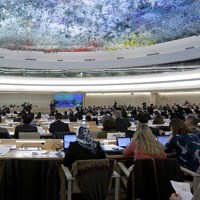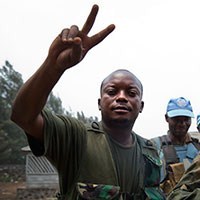
Did the liberal international order get a little less liberal last week? Western diplomats and human rights activists faced an accumulation of challenges across the United Nations system. On Tuesday, the General Assembly elected a clutch of repressive regimes—including China, Russia, Saudi Arabia and Vietnam—to the Human Rights Council. On Friday, African countries forced a showdown in the Security Council over the International Criminal Court’s (ICC) pursuit of Kenyan President Uhuru Kenyatta and Vice President William Ruto for stirring up election-related violence in 2007, accusing the U.N. of disrespect for Africa. To pessimistic observers, these developments are symptomatic of a […]



